Embarking on a sewing project can be an exhilarating journey, but selecting the correct sewing thread is a crucial step often overlooked.
Mettler, a trusted name in the world of sewing supplies, offers a diverse range of thread sizes, each tailored to specific needs and projects.
In this comprehensive guide, we delve into the intricacies of Mettler sewing thread sizes, unraveling the mysteries behind the numbers and helping you make informed decisions for your creations.
From lightweight threads for delicate fabrics to robust options for heavy-duty projects, understanding Mettler’s thread sizes empowers you to achieve professional results with every stitch.
Whether you’re a seasoned seamstress or a novice crafter, this guide will navigate you through the thread-size landscape, ensuring that your sewing endeavors are enjoyable and yield impeccable results. Join us on this exploration of Mettler sewing thread sizes.
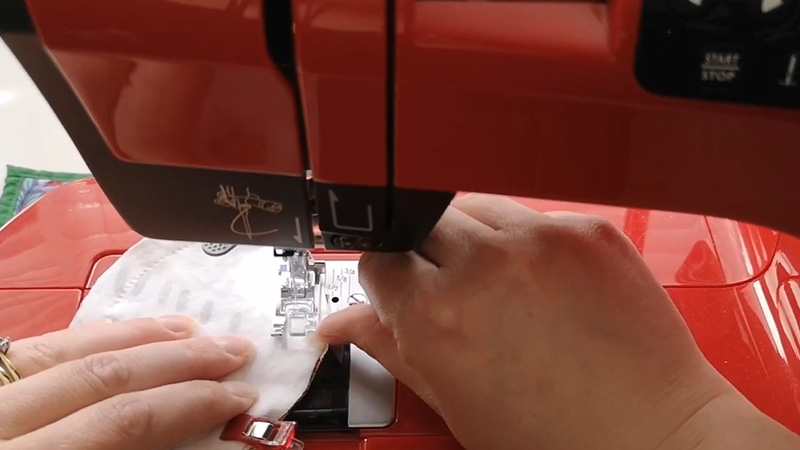
Mettler Sewing Thread Sizes
Let’s unravel the intricacies of Mettler sewing thread sizes, shed light on the significance behind the numbers, and guide you toward informed decisions for your sewing projects.
Understanding the Basics of Mettler Metrosene Thread Weight and Tex
At the heart of Mettler’s thread sizing system are two fundamental elements: thread weight and Tex. Thread weight refers to the thickness or diameter of the thread, while Tex measures the weight of the thread in grams per 1,000 meters.
These indicators are the foundation for selecting the appropriate thread for your sewing endeavors.
Mettler’s thread weights range from ultra-fine to heavy-duty, offering a spectrum suitable for diverse fabrics and projects. The Tex measurement further refines the selection process, ensuring compatibility with specific sewing machines and techniques.
Decoding Mettler’s Thread Sizes
Mettler utilizes a numerical system to categorize its threads. The lower the number, the thicker the thread. For example, a thread labeled 30 is thicker than one labeled 50.
This numerical representation simplifies the selection process, allowing users to identify the thread thickness suitable for their intended applications quickly.
Ultra-Fine Threads (80-100)
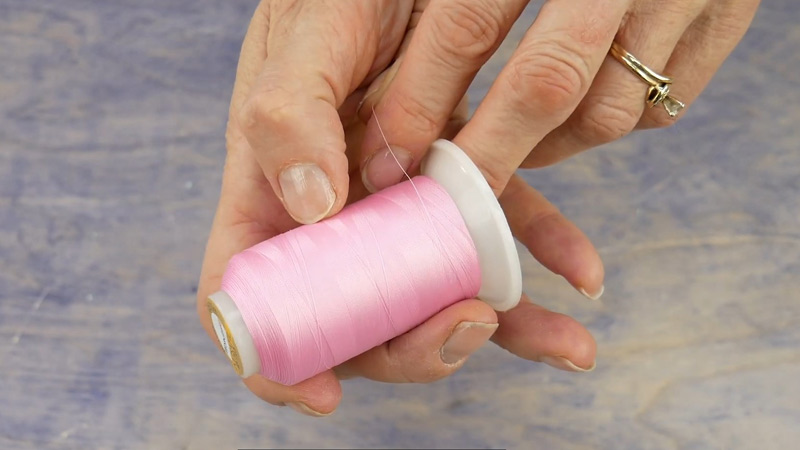
Ideal for delicate fabrics like silk and chiffon, these threads create virtually invisible stitches, maintaining the elegance of lightweight materials.
Fine Threads (50-60)
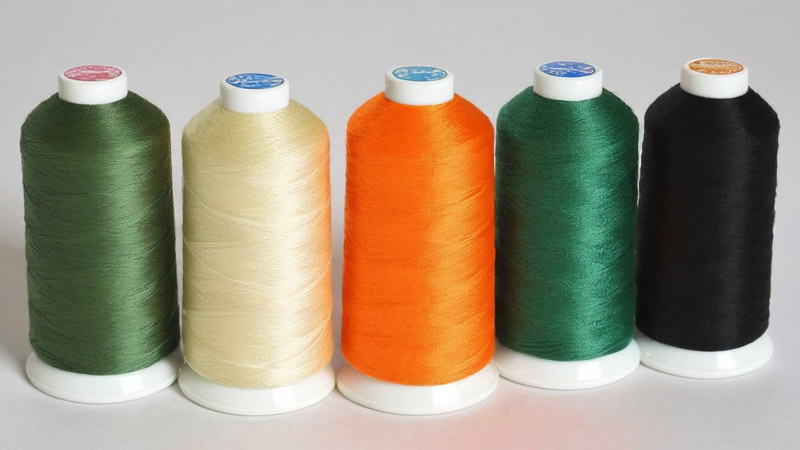
Versatile and commonly used for general sewing, these threads balance strength and delicacy, making them suitable for various projects.
Medium Threads (30-40)
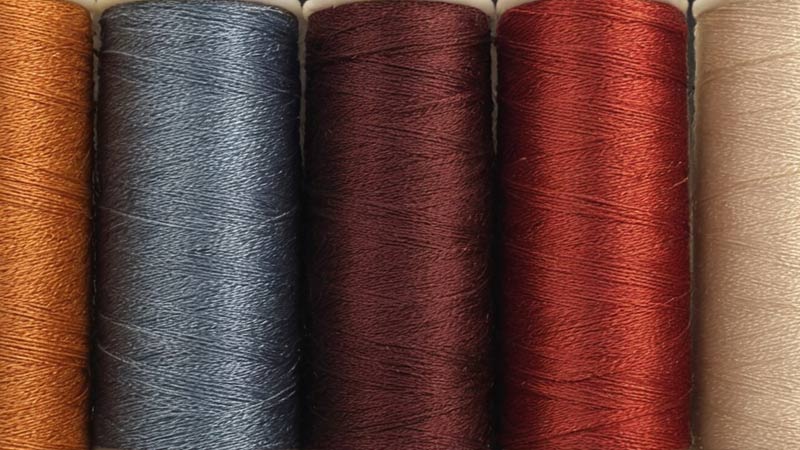
With increased thickness, these threads are perfect for heavier fabrics and more robust projects, offering durability without sacrificing flexibility.
Heavy Threads (12-30)
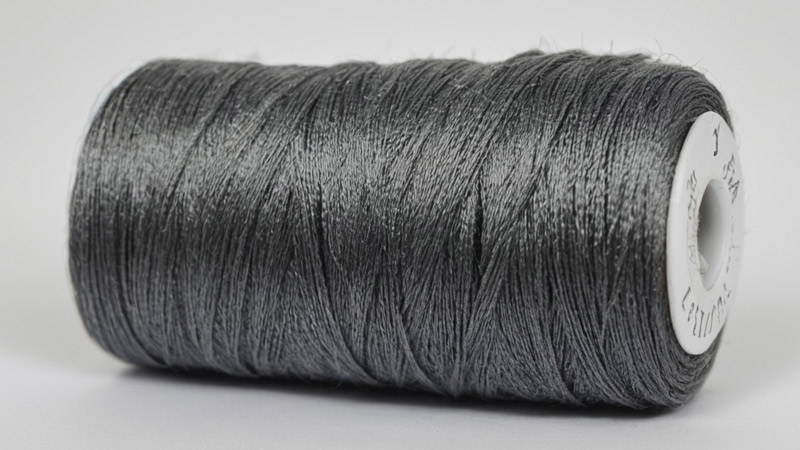
Designed for heavy-duty applications such as upholstery and denim, these threads ensure strong, secure seams in projects that demand resilience.
Meeting Unique Project Needs
Mettler goes beyond the standard thread sizes, offering specialized threads to cater to specific project requirements. This includes threads designed for embroidery, quilting, and even specialty threads like metallic or variegated options.
Understanding these variations enhances your ability to choose threads that match the project’s demands and contribute to its aesthetic appeal.
The Tex Factor and Matching Threads to Machines
While the numerical thread size provides a quick reference, the Tex measurement is equally crucial, especially when matching threads with sewing machines.
Different machines perform optimally with specific thread thicknesses, and Mettler’s Tex information ensures compatibility, preventing issues like tension problems or breakage during sewing.
Tips for Selecting the Right Mettler Thread Size
Choose thread thickness based on the fabric you’re working with. Delicate fabrics like silk demand finer threads, while heavier materials like denim benefit from thicker threads. Here are some more tips:
Understand Project Requirements
Assess the demands of your project. If it involves intricate embroidery, opt for specialized embroidery threads. For quilting, choose threads that provide both strength and visual appeal.
Machine Compatibility
Consult your sewing machine’s manual to identify the recommended thread thickness (Tex) for optimal performance. This ensures smooth sewing without compromising on stitch quality.
Experiment and Test
If uncertain, conduct test stitches on scrap fabric before starting your main project. This allows you to gauge the thread’s compatibility and adjust if needed.
What Are the Mettler Thread Types?
Each Mettler thread type is crafted with precision, ensuring quality and versatility. Here’s an in-depth look at some of the key Mettler thread types:
Mettler Silk-Finish Cotton Thread
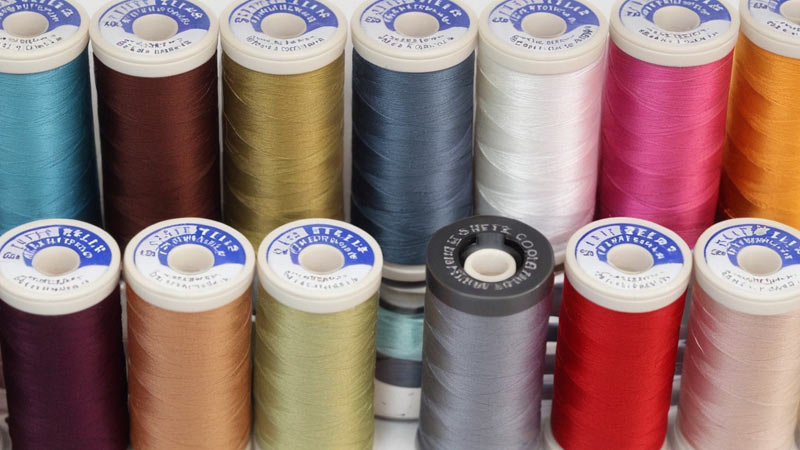
Renowned for its smooth and lustrous finish, the Silk-Finish Cotton Thread by Mettler is a favorite among quilters and sewists alike. This thread type is composed of long-staple Egyptian cotton and has excellent durability and strength.
Its mercerized finish enhances color vibrancy, making it an ideal choice for machine and hand-sewing projects. It’s suitable for general sewing, quilting, and crafting. Its refined nature makes it perfect for delicate fabrics and intricate stitching.
Mettler Metrosene Polyester Thread
Metrosene Polyester Thread is a high-quality, all-purpose thread known for its strength and colorfastness. Made from 100% polyester, it offers excellent resistance to abrasion and wear.
This thread’s smooth and uniform texture ensures easy sewing and reduces the risk of fraying. It’s ideal for sewing garments, home decor items, and other projects requiring a solid and durable thread.
Mettler Seracor Polyester Thread
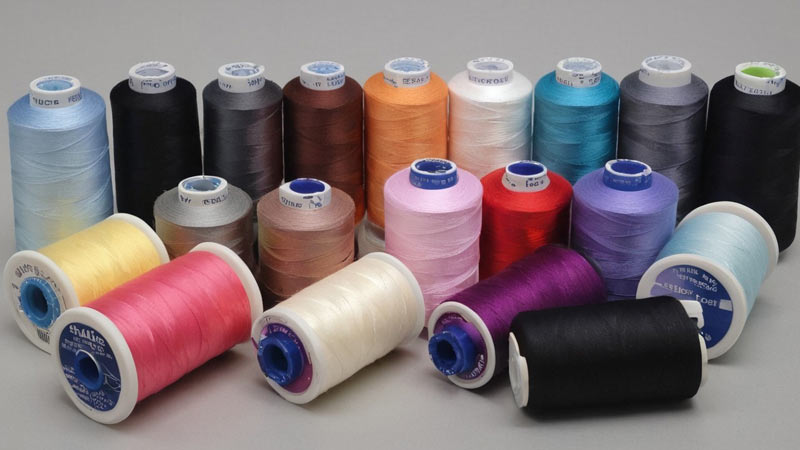
Seracor is Mettler’s premium serger and overlock thread. Engineered for use with serging machines, this thread type is specifically designed to withstand the high-speed and tension requirements of serging.
Its core-spun construction enhances strength and elasticity, resulting in secure and resilient seams. It’s perfect for serging and overlocking edges in various fabrics, including knitwear.
Mettler Metalfil Thread
Metalfil is a metallic thread that adds a touch of glamour to your sewing projects. Made with a polyester core for strength and stability, it is wrapped with a thin layer of metallic foil, creating a dazzling effect.
Metalfil is available in a range of metallic shades to add sparkle to embroidery and decorative stitching. It’s ideal for embellishments, embroidery, and decorative stitching with a desired metallic finish.
Mettler Silk-Finish Multi Cotton Thread
For those seeking a burst of color in their projects, the Silk-Finish Multi Cotton Thread is a multicolored, variegated thread that adds dimension and visual interest.
Made from 100% long-staple Egyptian cotton, it maintains the high-quality attributes of Mettler’s Silk-Finish thread while introducing a captivating play of colors. It’s perfect for adding a unique touch to quilting, embroidery, and decorative stitching.
Mettler Quilting Thread
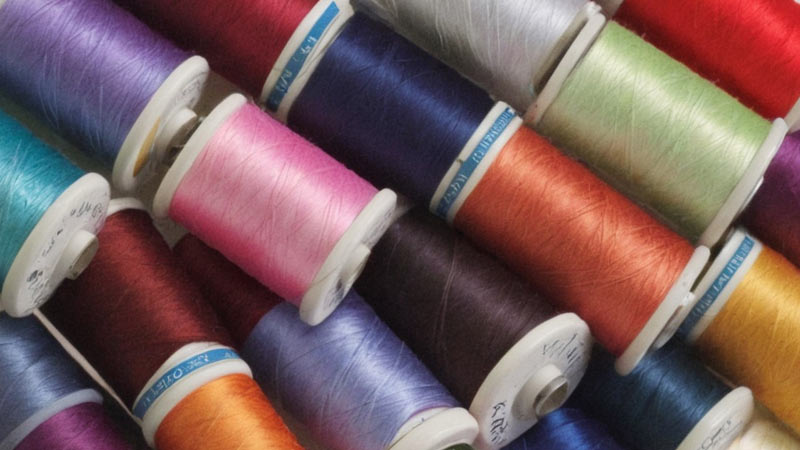
Mettler offers a dedicated range of quilting threads designed to meet the specific needs of quilters. These threads are carefully selected for their strength, color options, and resistance to repeated washing and wear.
Whether piecing together a quilt top or adding intricate quilting designs, Mettler quilting threads provide the reliability and quality quilters demand. It’s tailored for machine and hand quilting projects, giving strength and durability.
Mettler Embroidery Thread
Mettler’s Embroidery Thread is designed to add vibrancy and detail to your embroidery projects. This thread type is available in a wide range of colors and ensures consistent stitch quality and color brilliance.
It is suitable for use with both home embroidery machines and commercial embroidery equipment. It’s perfect for machine and hand embroidery projects, offering a smooth and even thread for intricate designs.
How to Choose the Right Sewing Machine Thread Sizes?
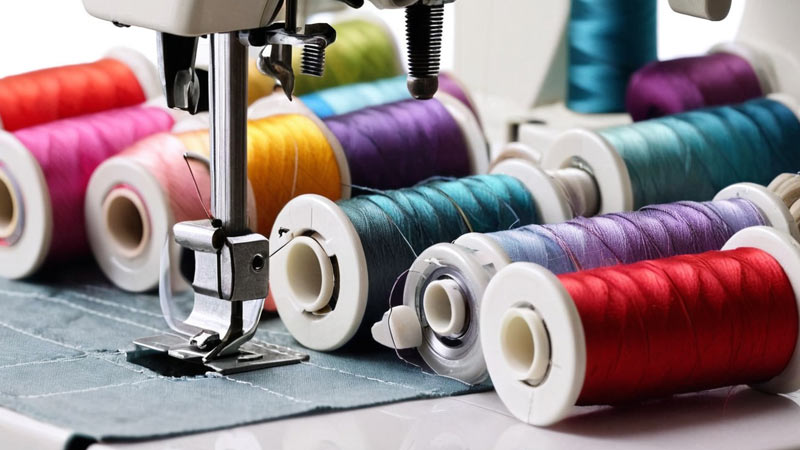
The thread size refers to the thickness or diameter of the thread, and selecting the appropriate size depends on various factors, including the fabric type, project requirements, and the specifications of your sewing machine.
Here’s a comprehensive guide on how to choose the correct sewing machine thread sizes:
Consult Your Sewing Machine Manual
Your sewing machine manual is valuable for selecting the correct thread size. Manufacturers recommend the suitable thread weights and types that work best with their machines.
Refer to the manual for information on thread size compatibility and any specific requirements your sewing machine may have.
Consider the Fabric Type
The fabric you are working with plays a significant role in determining the appropriate thread size. For lightweight and delicate fabrics like silk or chiffon, opt for finer thread sizes (higher numbers).
Medium-weight fabrics like cotton or linen generally work well with standard thread sizes. Heavyweight fabrics like denim or canvas may require thicker threads (lower numbers) for added strength.
Match Thread Size to Needle Size
The needle and thread work in tandem, and ensuring they are compatible is essential. As a general rule, choose a needle size corresponding to the thread weight.
Use a smaller needle for finer threads, while thicker threads require a larger needle. This ensures proper thread-to-needle interaction and prevents skipped stitches or tension problems.
Consider the Project Requirements
The nature of your sewing project influences the thread size you should choose. A medium-weight thread is often suitable for basic garment construction or everyday sewing.
However, if you are working on projects that demand intricate details, such as embroidery or quilting, consider specialized thread sizes designed for these purposes.
Evaluate Thread Strength
The strength of the thread is critical, especially for projects that undergo stress, such as upholstery or heavy-duty sewing.
Thicker threads (lower numbers) generally provide more strength and durability. Assess the requirements of your project and choose a thread size that aligns with the necessary strength and resilience.
Experiment and Test Stitch
If you are unsure about the best thread size for your project, conduct test stitches on a scrap piece of fabric.
This allows you to evaluate how the thread interacts with the fabric and whether adjustments are needed. Testing also helps you identify tension problems before starting your main project.
Consider Thread Material
Threads come in various materials, including cotton, polyester, silk, and specialty threads like metallic or variegated options. The material can affect the thread’s characteristics, such as sheen, stretch, and resistance to fading.
Choose a thread material that complements the fabric and project requirements.
FAQs
How do I choose the right Mettler thread size for my project?
Consider the fabric type and weight, the demands of your project, and your sewing machine’s recommendations. Mettler’s numerical thread sizes and Tex measurements provide valuable information to match the thread with your specific needs.
Can I use the same Mettler thread types for regular sewing and embroidery?
Mettler offers specialized threads for different purposes. While regular sewing threads work well for general stitching, Mettler also provides dedicated embroidery threads designed to enhance the visual appeal of intricate embroidery projects.
Are Mettler thread sizes compatible with all sewing machines?
Mettler sewing thread size provides Tex information alongside numerical sizes, helping you choose threads compatible with your sewing machine. Consult your machine’s manual to identify the recommended thread thickness for optimal performance.
What is the significance of Tex measurements in Mettler sewing thread sizes?
Tex measures the weight of the thread in grams per 1,000 meters. It is crucial for matching threads with sewing machines, preventing issues like tension problems or breakage during sewing. Understanding Tex ensures compatibility and smooth stitching.
Are there specific Mettler sewing machine thread sizes recommended for quilting projects?
Yes, Mettler offers thread options specifically designed for quilting. The Mettler sewing thread provides a balance of strength and visual appeal, making it suitable for the unique demands of quilting projects. Consider the weight and Tex recommendations for optimal results in your quilting endeavors.
Conclusion
Navigating the array of Mettler sewing thread sizes is essential for any sewing enthusiast. As we’ve explored the intricacies of these threads, from the delicate to the robust, we’ve uncovered the key to elevating your sewing projects to new heights.
By understanding the nuances behind the numbers, you can confidently choose the perfect thread for your fabrics and applications.
Mettler’s commitment to quality ensures that each thread size is crafted with precision, contributing to the durability and aesthetics of your creations.
Whether you’re quilting, crafting garments, or engaging in intricate embroidery, this guide has equipped you with the knowledge to make informed decisions.
As you embark on your sewing endeavors, let the thread sizes be your ally in achieving professional-grade results. May your stitches be precise and your projects be a testament to the seamless fusion of creativity and craftsmanship.
Leave a Reply